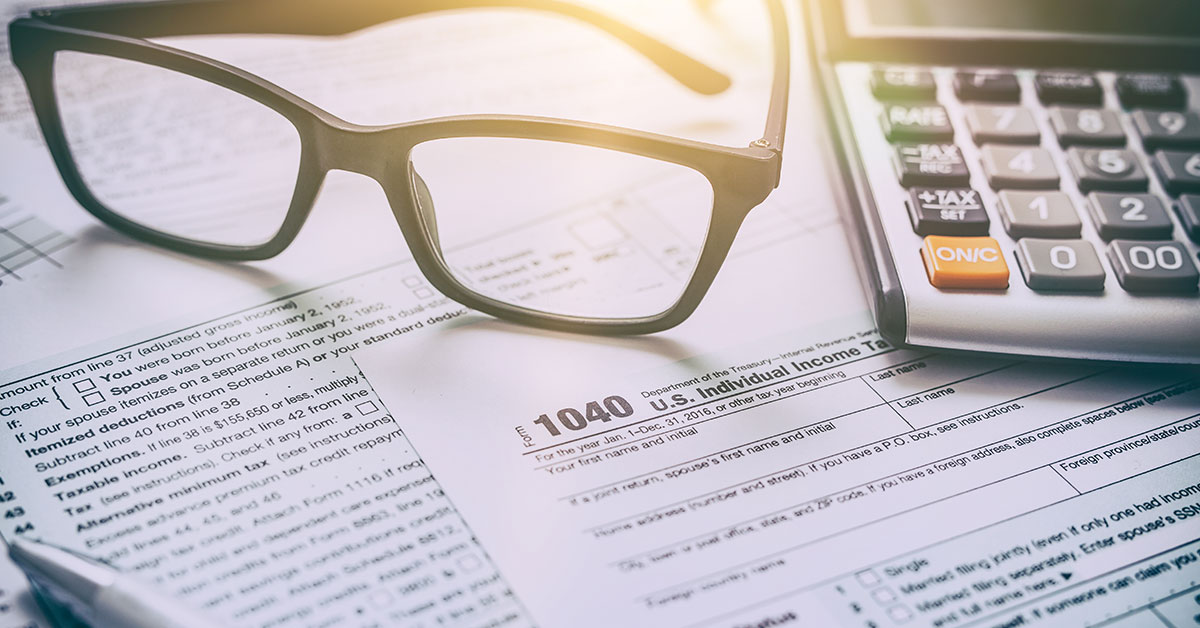
What is Backup Withholding?
Backup withholding is one of the many tools in the IRS arsenal that ensures that taxes are accurately reported and paid. Backup withholding is a federal tax levied against certain types of income at a specific tax rate. When receiving this income, the person or business paying you does not withhold taxes, assuming you will report and pay taxes on this income when you file your federal income tax return. If you don’t report and pay these taxes, Backup Withholding may be required. You and your financial institution will receive a notice from the IRS if Backup Withholding needs to be applied to your income.
When Backup Withholding is applied, the financial institution must withhold 24% of the income related to your TIN (taxpayer identification number). The IRS enforces this because the government does not want to run the risk of the investor not paying tax on the investment when filing income taxes. The financial intermediary then remits the tax to the government. Investors can claim this advance as a credit against payable dues when filing future tax returns.
When is Backup Withholding Applied?
Backup withholding only applies to specific types of 1099 income. Examples include:
- Gambling winnings
- Royalties
- Interests
- Dividends
- Rent
- Payments from fishing boat operators
- Commissions and fees for work performed as an independent contractor
- Payments on stocks and bond transactions from brokers
Backup withholding tax does not apply to pension payments or wages. Other examples of the types of income typically excluded from backup withholding include tax refunds, real estate transactions, and unemployment compensation.
How Backup Withholding Works
Are you subject to backup withholding? If you are exempt from mandatory backup withholding and are charged anyway, report this to the IRS immediately as it is possible that the IRS was mistaken and flagged you for backup withholding in error. Backup withholding is primarily initiated for one of two reasons:
1. Incorrect Information on Tax Forms
If you or the payer submit an incorrect name or taxpayer identification number (TIN) on your tax forms, you may be subject to backup withholding. The IRS gives you a chance to rectify this mistake by sending a "B" notice informing the payer that the information they provided does not match IRS records. Before beginning backup withholding, the payer is required to send you a copy of the "B" notice.
2. Unreported/Underreported Interest or Dividends
When you don't accurately report the income received from interests or dividends, you risk having to pay backup withholdings on future earnings. However, the good news is, the IRS will notify you of this well in advance before requiring the payer to initiate the process. You will receive four notices via mail over a 210-day period.
The typical taxpayer is exempt from backup withholding unless one of the two situations above occurs.

Can You Recover Backup Withholdings?
To stop the backup withholding process, you must correct the error that initiated the process in the first place. If the backup withholding was applied to you due to incorrect information, you could easily fix this situation by submitting the correct information to the payer. However, if the process was initiated as a result of underreported dividends, you must establish which one of the following four scenarios triggered the backup withholding:
- Income was not reported or underreported.
- You had previously reached out to the IRS about underreporting, but the matter was still pending.
- You will face undue financial difficulties due to the backup withholding but will file an amended return.
- You made an honest mistake when filing your returns and have already filed amended returns.
If none of these situations apply to you, you might never recover the backup withholdings paid. Understand that backup withholdings are not penalties. Instead, they are a way for the IRS to guarantee that you ultimately pay all the taxes you owed. If more taxes were withheld than you owed, you could receive a refund during tax time of the amount overpaid.
The best way to recover from backup withholding is to prevent it altogether. However, if you do become subject, you’ll need to correct the reason that caused it in the first place. This could include, filing missing tax returns, resolving underreported income, paying balances owed, and providing the correct TIN to the payer.
More About Taxes and Savings from Community First
- Examples of Intangible Tax
- How to Score Extra Cash in Tax Season
- How to Avoid Tax Theft Scams
- Smart Ways to Use Your Tax Refund
- Why to Open a CD in your 20s and 30s









